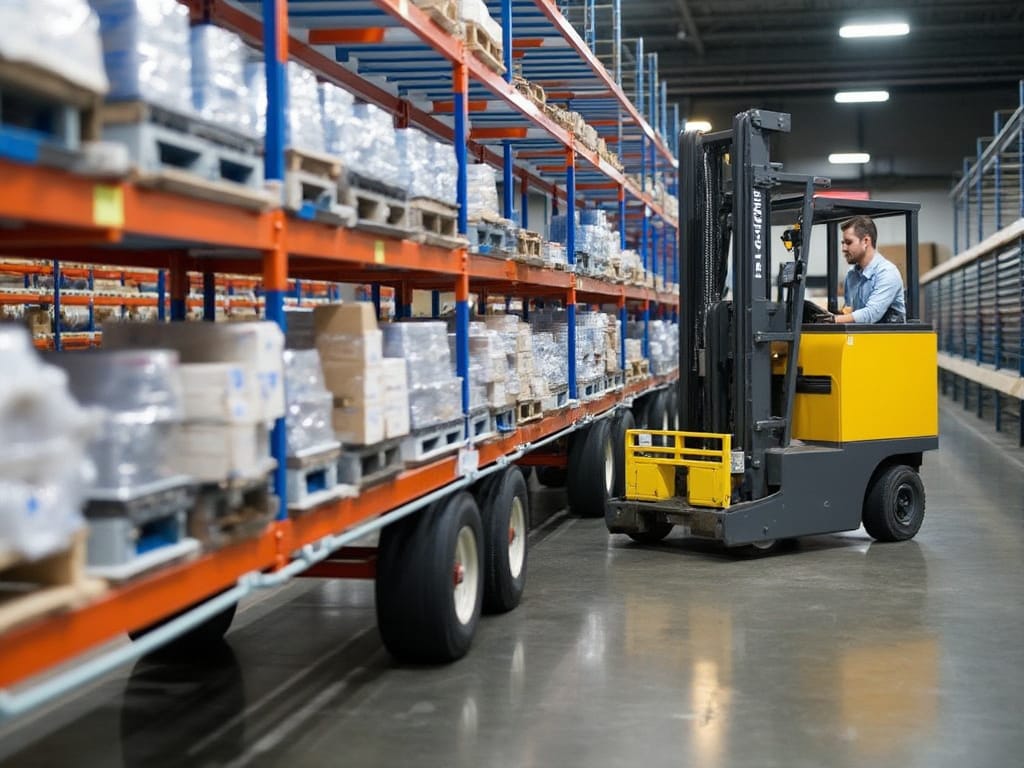
In today's rapidly evolving agricultural landscape, artificial intelligence (AI) and machine learning (ML) are no longer futuristic concepts but essential tools transforming how farms operate. From predicting optimal planting times to detecting plant diseases before they spread, AI technologies are helping farmers make smarter decisions while maximizing yields and minimizing resource use.
Artificial intelligence is changing agriculture at an unprecedented pace. Unlike traditional farming methods that rely heavily on historical knowledge and intuition, AI-powered systems analyze vast amounts of data to provide actionable insights that would be impossible for humans to process manually.
"The future of farming isn't just about bigger tractors or more land—it's about smarter decisions powered by artificial intelligence. A single algorithm can now accomplish what used to require years of agricultural experience." - Dr. James Wilson, Agricultural Technologist
The integration of AI with agricultural ERP systems creates powerful platforms that connect every aspect of farm management into a cohesive system. These intelligent platforms can analyze soil conditions, weather patterns, crop health, and market prices simultaneously, generating recommendations that boost productivity while reducing costs.
One of the most valuable applications of AI in agriculture is predictive analytics. By analyzing historical data alongside real-time information, ML algorithms can forecast crop yields with remarkable accuracy, helping farmers make crucial decisions about planting schedules, resource allocation, and harvest timing.
These crop prediction tools integrate with weather APIs and satellite imagery to monitor field conditions continuously. The system can alert farmers to potential issues before they become visible to the human eye, enabling preventative action that preserves yield and quality.
Computer vision technology is revolutionizing how farmers monitor their crops. AI-powered cameras mounted on drones, tractors, or fixed positions can:
These systems can cover hundreds of acres in a fraction of the time it would take for manual inspection, sending notifications directly to the farmer's mobile devices.
AI is powering the next generation of autonomous farm equipment. Self-driving tractors can operate with centimeter-level precision, reducing fuel usage and soil compaction while operating 24/7 during critical planting or harvesting windows.
Similarly, robotic harvesters equipped with computer vision can identify ripe produce and harvest it with minimal damage. These robots are particularly valuable for specialty crops that traditionally require careful hand-harvesting, addressing labor shortages while maintaining quality standards.
The integration of drone technology with AI creates powerful tools for precision agriculture, enabling targeted applications of water, fertilizers, and pesticides exactly where needed.
The power of AI in agriculture comes from specialized machine learning models designed to address specific farming challenges. These include:
Deep learning networks can analyze thousands of plant images to identify diseases, pests, or nutrient deficiencies that might be indistinguishable to the human eye. This technology is now available through smartphone apps, allowing farmers to diagnose issues by simply taking a photo of affected plants.
The same technology is revolutionizing precision farming, enabling variable-rate applications of inputs based on real-time field conditions.
AI systems that use reinforcement learning continuously improve their recommendations by monitoring outcomes. For irrigation management, these systems optimize water usage by analyzing soil moisture sensors, weather forecasts, crop type, and growth stage to deliver precisely the right amount of water at the ideal time.
Modern AI assistants equipped with natural language processing help farmers access crucial information without sifting through technical manuals. These systems can answer specific questions about pest management, equipment troubleshooting, or biotechnology applications, tailoring responses to the specific context of the farm.
The true power of agricultural AI emerges when integrated with comprehensive ERP systems that manage all aspects of farm operations. This integration enables:
By automating routine tasks and optimizing resource allocation, AI-enhanced ERP systems dramatically improve farm efficiency. Smart scheduling of equipment, labor, and inputs ensures that operations run smoothly while minimizing waste.
AI algorithms can optimize input usage to minimize environmental impact while maintaining productivity. For example, variable-rate fertilizer applications based on soil analysis and crop requirements can reduce overall chemical use by up to 40% while improving yields.
Machine learning models excel at detecting patterns that might indicate emerging risks. From predicting equipment failures before they occur to forecasting weather-related challenges, AI-powered systems help farmers proactively address potential issues.
Perhaps the most significant benefit of AI in agriculture is its ability to transform data into actionable intelligence. Rather than relying on intuition or tradition, farmers can make decisions based on comprehensive analysis of all relevant factors.
As IoT technology in farms continues to expand, the volume of agricultural data will grow exponentially. This data tsunami will fuel increasingly sophisticated AI models capable of generating even more precise recommendations and predictions.
Key developments on the horizon include:
Artificial intelligence and machine learning are fundamentally transforming agriculture, creating smarter, more efficient, and more sustainable farming operations. By integrating these technologies with comprehensive agricultural ERP systems, farmers gain unprecedented visibility and control over their operations.
The farms of tomorrow will leverage AI not to replace human expertise but to augment it—combining generations of agricultural wisdom with cutting-edge technological capabilities. This powerful partnership between human and artificial intelligence promises to address the dual challenges of feeding a growing global population while minimizing environmental impact.
For agricultural operations looking to remain competitive in an increasingly complex market, embracing AI isn't just an option—it's becoming essential to survival and success.

Find Agriflow in other countries of Africa